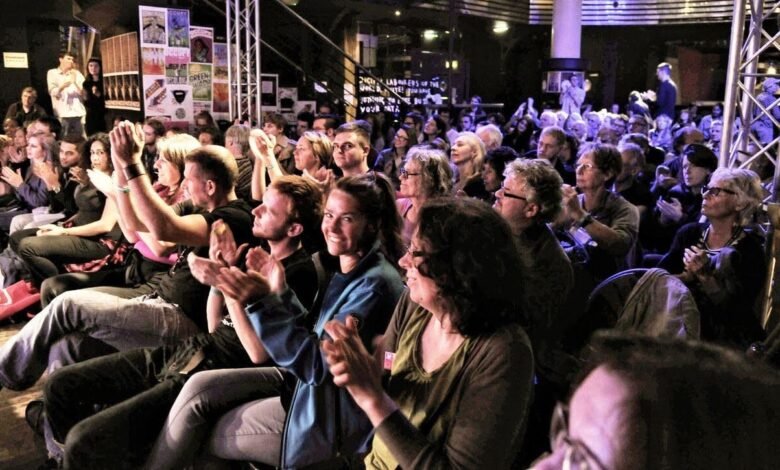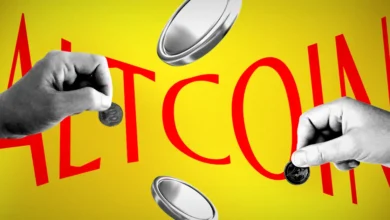An evening with Momentum at the Labour Party conference

By BAGEHOT | BRIGHTON
I VENTURED into Momentum’s “A World Transformed” jamboree—a sort of parallel conference running alongside the main Labour Party conference—with some nervousness. Momentum has a reputation for playing hardball: they were responsible for making sure that Brexit wasn’t really discussed at the conference, for example. The meeting has seen a lot of journalist-bashing: Laura Kuenssberg, the BBC’s political editor, is accompanied by a bodyguard and any mention of the press elicits jeers. “A World Transformed” is held in an off-putting warren of rooms: a makeshift “hub”, where people gather to chat and organise, a cavernous night club, where meetings are held, and other rooms that looked too frightening to enter.
But I was immediately made to feel at home. A charming woman called Hilary Wainwright took me under her wing and introduced me to the staff. (It turned out that Ms Wainwright is the aunt of The Economist’s Britain editor, Tom Wainwright, but that the meeting was a pure coincidence.) The young organisers were all unfailingly polite. The atmosphere was rather like a pop festival (though one with an unusually large contingent of older people): people were relaxed but efficient, solicitous but business-like.
Ms Wainwright explained that Momentum is more like an organism than a machine: it grows from the bottom up and constantly evolves in new directions. Rather than being a sub-division of Momentum “A World Transformed” is a free-standing organisation that was founded last year at the Labour Party Conference in Liverpool and has reconstituted itself, bigger and better, this year in Brighton. The festival has sold 3,500 tickets and could have sold many more if it hadn’t been restricted by health and safety. People queued around the block for hours to hear John McDonnell talk about Labour’s programme for when it comes to power. Momentum’s organic organisation contrasts sharply with the trade unions (which dominate the main event in the Conference Hall) and with Tony Blair’s New Labour, both of which, in their different ways, rely (or relied) on top-down direction and control. In Tony Blair’s Labour Party smartly dressed men and women in business suits strolled around the conference telling people what to do. A tight cabal led by Mr Blair, Gordon Brown and Peter Mandelson controlled everything. In Mr Corbyn’s Labour Party activists in baggy clothes rush around in a state of creative excitement engaging in self-organisation.
Ms Wainwright also pointed out that Momentum involved people of very different ages. The movement is generally associated with young activists who flooded into the party after Jeremy Corbyn’s election as leader and who provided much of the leg work for Mr Corbyn’s “victory” in the election. These young activists have had their early years scarred by two great tragedies—the Iraq War and the financial crisis—and they are determined to remake both the country and the Labour Party from the ground up. But Ms Wainwright, who is 68, says that there are plenty of veteran socialists like her who have rejoined the Labour Party after years of disillusionment. She got involved in the woman’s movement in the 1970s, worked for a while as a shop steward and campaigned against the Iraq war. Now, along with lots of other commitments, she is the co-editor of Red Pepper, a London-based radical magazine.
Talking to Ms Wainwright and her comrades reminded me of a book by Christopher Hill, a venerable Marxist historian who taught me at Balliol College in Oxford, “The World Turned Upside Down”. Hill argued that the English Revolution (as he insisted on calling a civil war that involved Scotland, Ireland and Wales as well as England) revealed a radical sub-culture that had been flourishing for years but which established society ignored out of a combination of arrogance and official censorship. There were dozens of radical sects such as the Diggers, the Rangers and the Levellers, which spent their lives dreaming up schemes for abolishing private property, marriage and the state. By the same token the collapse of the Blairite Labour Party has revealed the fact that hundreds of left-wing groupuscles continued to flourish under the surface of Britain’s consumer society. Many of these groupuscles are infused with the same spirit of religious radicalism that infused Hill’s sects: Momentum supporters even hold sessions where they “bear witness” to their conversion to the movement, telling, in emotional detail, how they first discovered radical politics or how they first realised that Jeremy Corbyn could, indeed, win the next election. The feeling is that if Labour could pull off the impossible by overturning a Conservative majority in Brighton (Kemptown) by a staggering 10,000 votes then it can also nationalise the means of production and end war on earth.
One of the most striking things about Momentum is how much emphasis it puts on having fun—treating politics as a branch of entertainment rather than just a means to an end. People repeat that politics is “open, participatory, recreational”. The walls of Momentum’s hideous temporary headquarters are decorated with peace quilts, a global justice banner made of denim (because of its “association with working people everywhere”) and trade union banners. The “hub” has a “creativity chaos corner” where people are supposed to be chaotically creative or creatively chaotic. The “World Transformed” has lots of “fun” events such as a pub quiz, hosted by Ed Miliband, which will test whether you can tell your Karl Marx from your Kinnock or your New Left from your New Labour. Mixing different age groups together in such an environment can create problems: several rows of people in their 60s and 70s had to listen to deafening Goth music for half an hour as they waited for Mr McDonnell. But you can’t have a revolution without breaking a few ear drums.
The far left is no stranger to divisions—between Trotskyites and Stalinists, Bolsheviks and Mensheviks, reformists and revolutionaries. The Labour left is now seeing the birth of yet another division—between professional revolutionaries and recreational revolutionaries. The professional revolutionaries can be seen gathered outside the Conference headquarters every morning: grim-faced men and women who have given their lives to “the movement” and try to make you spend a pound buying a copy of the Morning Star or Red Pages, a compendium of Conference-related comment produced every day by “Labour Party Marxists”. There are also plenty of these apparatchiks in the conference hall—including the leader of the species, John McDonnell, a hatchet-faced man who has spent his life on the far left. Momentum, on the other hand, is the home of recreational revolutionaries—people who are visibly having fun in politics. These recreational revolutionaries have a remarkable ability to attract new members to the movement and catch them up in the whirl of political activity.
But there is a dark side to the revolution as recreation. Some recreational revolutionaries get their fun out of smashing things up: these are the anarchists who turn up at demonstrations dressed in black, wearing balaclavas and bandanas, with the express purpose of causing as much mayhem as possible. And at some point politics ceases to be a recreation and becomes serious. The politics-as-fun bubble will eventually burst when Labour is confronted with hard-choices and difficult sacrifices. That will leave just the hard men and women in charge: the people who understand the difference between a revolution and a tea party.
Update (September 26th): This piece has been amended to remove a reference to trolling by supporters of Momentum and to update the number of tickets sold by “The World Transformed”.




